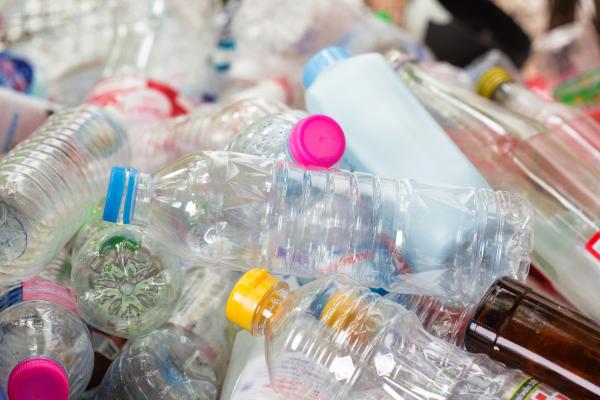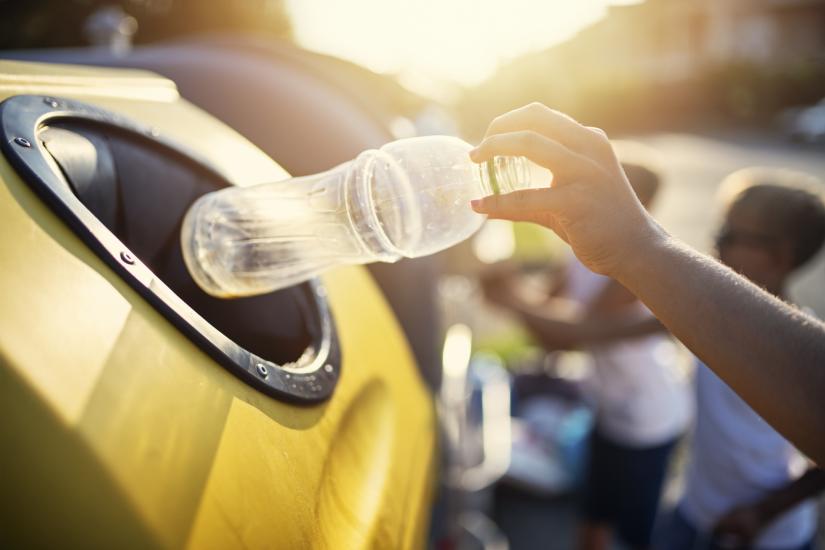Reusing and reducing waste is where we ultimately want to get to.
— Stuart White, Institute for Sustainable Futures
NSW container deposit legislation, which came into effect in 2017, has been described as ground-breaking and historic, and "the single largest initiative ever undertaken to reduce litter in NSW".
According to the State Government, as of March, 2020, three-quarters of the population have participated in its ‘Return and Earn’ container deposit scheme (CDS), with nearly 5 billion containers returned, and drink container litter in parks, rivers and streams dramatically reduced.
The scheme has also generated more than $10 million in revenue for the not-for-profit sector and created recycling industry jobs.
But thanks to intense lobbying by the beverage industry, which has long opposed such schemes, the state’s container deposit legislation risked being abandoned before it had even begun.
The scheme’s implementation can be traced back to a major piece of research produced by the UTS Institute for Sustainable Futures (ISF), and the role that research has played over the past two decades in public and political campaigns to reduce litter.
Principal author of the independent report about container deposit legislation (CDL), ISF’s Professor Stuart White, says NSW’s decision to go ahead with CDL is just the latest chapter in a long and controversial story.
"The beverage and packaging industry have, over the years, provided modest funding for litter-reduction campaigns or initiatives to reduce packaging, in exchange for governments resisting calls to introduce a system that puts responsibility for recycling cans and bottles on the companies that make them," says Professor White.
Report findings
Professor White’s report, commissioned in 2000 by then Labor Government Environment Minister, Bob Debus, incorporated the international and South Australian experience, and examined stakeholder and community attitudes to container deposit schemes, and the costs and benefits of such a scheme in different environments.
You could call it the first substantial analysis and rebuttal of the beverage industry’s case against container deposit legislation.
— Jeff Angel, Total Environment Centre & Boomerang Alliance
Professor White and a team of ISF researchers revealed that these schemes received strong support from government, and from environment and community groups, limited support from the recycling industry, and strong opposition from beverage, packaging and retail industries.
The research showed that CDS legislation could replicate or increase the environmental and economic benefits of litter reduction and package reduction by avoiding the unnecessary production of new materials, while at the same time reducing the cost of disposing of single-use containers. All up, such legislation would be worth $100-$150 million a year.
Citing the success of similar systems in North America and Europe, the report showed also that the schemes achieve the highest level of container recovery rates.
Professor White examined also an important environmental management principle, known as extended producer responsibility (EPR), which had emerged from Sweden 10 years earlier.
In waste management, it is a strategy that adds all of the environmental costs associated with a product through its entire life cycle to the market price of that product.
Professor White concluded EPR was a strategy worth pursuing because it could improve waste management and other environmental outcomes in an economically efficient way.
Intellectual capital
The Labor Government chose not to implement CDL. But environment groups and local councils, which had been concerned for years about drink bottle litter, embraced the report as a major plank in their campaigns for change.
As Executive Director at the Total Environment Centre & Boomerang Alliance, Jeff Angel, explains, the ISF report provided the intellectual capital for the case for CDS.
"You could call it the first substantial analysis and rebuttal of the beverage industry’s case against CDL," says Angel. It was also the first major application in Australia of EPR, he says.
Director of ReLoop Platform and long-term CDS and circular economy campaigner, Rob Kelman, agrees the report helped put to bed a number of myths propagated by the beverage industry, for example, that container deposit schemes are hugely expensive.
There are ‘"a lot of bodies buried in the rubble" of campaigns that tried and failed to overcome the power of the beverage industry when it comes to reducing litter, says Kelman. The ISF report provided anti-litter campaigners with rigorous, factual research that underpinned a public campaign to introduce a CDS.
"I don’t think anyone has disputed the findings or analysis," he says.
But the report wasn’t enough on its own.
Political will
"What it took to get [a CDS] over the line was – and we found this overseas as well – a committed environment minister having the facts in his or her back pocket and having the political will to implement a scheme," says Kelman. "You can’t have political will without the facts to back it up. You need both."
The political will came from NSW Liberal Premier Mike Baird and his environment minister Rob Stokes, who made a 2015 election pledge to introduce a scheme by 2017 that would reward residents for collecting and returning bottles and cans to hundreds of reverse vending machines across the state.
Media has since revealed that Baird and Stokes came under intense pressure from the beverage industry to dump the scheme, including the threat of attack advertising during the election.
Pressure was brought to bear also on ISF, making it a stressful time for all of the researchers involved in the report, says Professor White.
"Perhaps beverage companies saw the legislation as the thin edge of the wedge in terms of regulation. First, it’s the bottles, next it might be the sugar in the bottles. This is despite the industry managing quite well in some overseas markets where litter regulation is much tougher," he says.
However, the rigour of the ISF research stood as a bulwark against industry pressure, says Professor White, and helped to enshrine concepts such as producer stewardship in legislation.
The subsequent design of the NSW scheme drew on Professor White’s research, among others, to guide its implementation. For example, it adopted his recommendations for a depot or collection centre-based CDS to promote accessibility for deposits, and a uniform deposit level of 10 cents per container.
Most significantly, Professor White’s recommendation for a mechanism to adequately compensate those involved with depositing and processing used containers led to the creation of a scheme coordinator role.
The scheme coordinator managed industry stakeholder opinions of the CDS as it was rolled out and ensured the primary aim of reducing single-use container waste was maintained.
Others follow suit
In Australia, CDS schemes were first implemented in South Australia in 1977, with the next scheme – in the Northern Territory – not emerging until 2012. It was the NSW scheme that prompted other large states to follow suit, says Kelman.
The Australian Capital Territory, Queensland and Western Australia now all have schemes in place, while Tasmanian and Victorian schemes are expected to be in place by 2022 and 2023, respectively.
You can’t have political will without the facts to back it up. You need both.
— Rob Kelman, ReLoop Platform
The impact of the breadth and depth of the ISF report continues to be felt. It is still referred to in public campaigns, it has been regularly cited by the media and at waste and sustainability conferences, and it has influenced local government recycling policies.
The NSW legislation that finally emerged from the ISF research "was a reform that moved us towards extended producer responsibility and that’s important as we make the move away from waste management towards a circular economy," says Professor White.
"The times will come to suit that argument and we will have the groundwork to move to a circular economy. Reusing and reducing waste is where we ultimately want to get to."
RESEARCH OUTPUTS
Independent review of container deposit legislation in New South Wales - Volume 1 (2001) (Report)
Independent review of container deposit legislation in New South Wales - Volume 2 (2001) (Report)
Independent review of container deposit legislation in New South Wales - Volume 3 (2001) (Report)
Researcher
-
Director, Institute for Sustainable Futures
Years
- 2000, 2017





